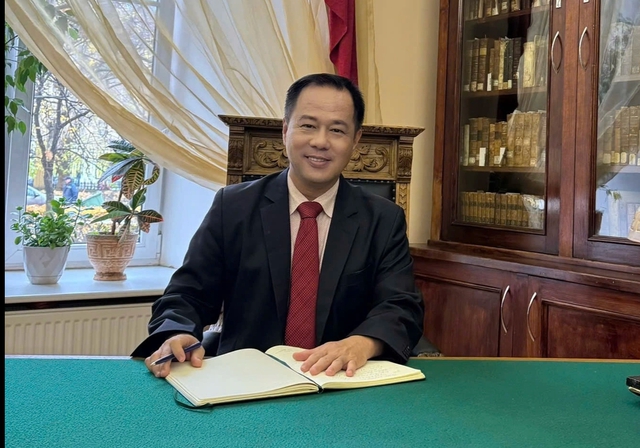
Professor Huynh Van Son, Principal of Ho Chi Minh City University of Education
PHOTO: NVCC
Teachers must have the ability to learn throughout life.
Professor, in the context of strong technological development today, how do you evaluate the changes in requirements for the teaching profession?
Professor Huynh Van Son: In the past, teachers were considered "living knowledge warehouses", the ones who hold, transmit and guide students on basic human values. But today, when knowledge is stored and spread by billions of clicks, the role of teachers is no longer just to transmit, but to become guides, suggesters, and inspirers of students' self-learning ability and personality as well as courage, autonomy and responsibility.
We cannot deny that artificial intelligence (AI) can be smarter than humans in data processing, but it cannot replace humans in influencing, nurturing and awakening the soul. A teacher of the new era must be someone who knows how to use technology as a smart assistant, but the heart must still lead the way and show the way. Recently, some pedagogical students and I shared and agreed: "Don't be afraid of good AI, just be afraid of teachers forgetting human values in teaching." Because, no matter how the world changes, teaching is still a profession of humans, by humans and for humans. How your heart uses AI, the product will be like that; how your talent uses AI, the essence of that talent will immediately appear...
From another perspective, technology has changed the requirements of the teaching profession not only in terms of digital knowledge, but also in terms of emotional capacity, adaptability, critical thinking and intercultural communication. This context requires teachers to be able to learn throughout their lives, be flexible in their methods, know how to inspire in virtual space, and know how to "connect" students in the real world with positive energy and educational beliefs. Inspiring, leading a responsible path, using conscience and emotions to live and work... are things that will always be treasured when doing the job.
The survival requirements of the teaching profession today
According to you, what are the core competencies that a new-age teacher needs to have to meet the requirements of modern education?
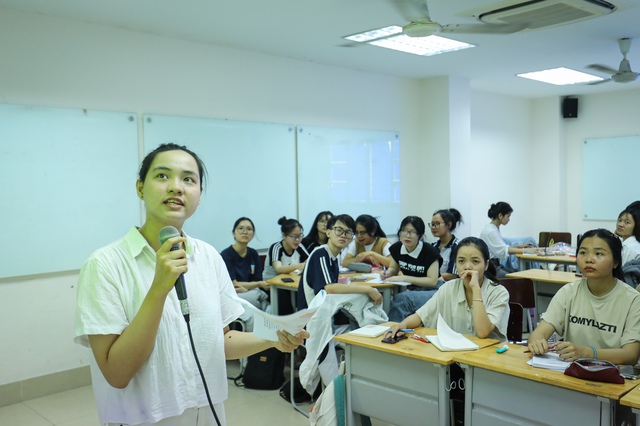
The teacher training program focuses on professional knowledge and pedagogical skills connected with an open - adaptive - technology-integrated training model.
PHOTO: NHAT THINH
In essence, teachers are the ones who "produce" human resources for all other professions. If the "main machine" breaks down, the output, that is, the social human, will be affected. Therefore, shaping the core competencies of teachers in the new era is a strategic and very necessary task. It is difficult to generalize or choose because competencies are a combination, but it is possible to choose a number of groups of competencies that teachers in the AI era need to prioritize.
The first is technological capacity and digital transformation. Because we cannot teach in the old way in the new learning environment. Teachers must understand, use and integrate technology proactively, from designing online lectures, applying AI in assessment and feedback, to using learning data to analyze student capacity. However, the more important thing is to know how to control technology, not be led by technology.
Second is the capacity for human emotions and behavior. This is something that machines can never replace. A word of encouragement, a look, a simple support or just empathy at the right time can change a student’s life. Teachers need the ability to listen, understand, empathize and educate with all their heart because it is a tool of special value.
Third is creativity and critical thinking. Teachers cannot teach creative thinking if they themselves lack creativity. Teachers need to learn how to design learning experiences, not just deliver content. Each lesson must be a journey of discovery , not just a test. Critical thinking with technique and destination; critical thinking that aims for something new and creative is very valuable.
Fourth is the ability to integrate and the ability to learn throughout life. In a flat world, knowledge changes faster than ever. Teachers cannot only teach what they know, but also need to learn how to teach new things. Learning to adapt, learning to upgrade oneself, that is the vital requirement of the teaching profession today.
Ultimately, the most important thing is still the ability to love the profession and believe in the value of education. A teacher can be good at technology and proficient in skills, but if they lack love and dedication, they will find it difficult to pass on the flame of knowledge discovery. Technology is just a tool, the heart is the true "copyright" of a teacher.
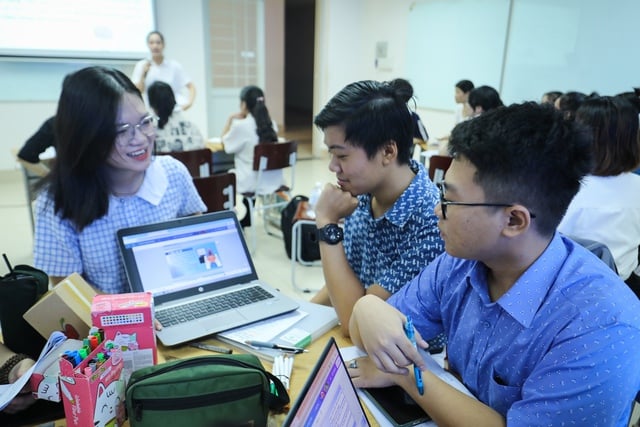
Pedagogy students in a class. One of the necessary competencies for teachers today is technology and digital transformation.
PHOTO: NHAT THINH
"Smart Education" Cannot Be Just "Machine Education"
To achieve the above goal, what factors is the school's current teacher training focusing on, and what is different from before?
It can be said briefly that today's pedagogical education is not only teaching to become a professional, but also teaching to adapt, innovate and lead change. This is something that education leaders have been very interested in over the past time. Ho Chi Minh City University of Education in particular is implementing many comprehensive innovations, from training philosophy to program operation. The training program focuses on professional knowledge and pedagogical skills connected with an open training model - quick adaptation - technology integration. We focus on 3 factors:
The first is competency-based training. Students must not only "know how to teach", but also "be able to teach" and more importantly, "teach well and teach creatively". All programs are built according to output competency standards, with a proven assessment system.
The second is the development of digital technology capacity. Since 2023, the school has built output standards on digital capacity and digital technology spread horizontally and vertically in the program. In addition to the basic and applied informatics courses, the integration of digital skills education courses and modules on AI applications in education, learning data analysis, digital lesson design and implementation of AI-based assessments are continuous steps.
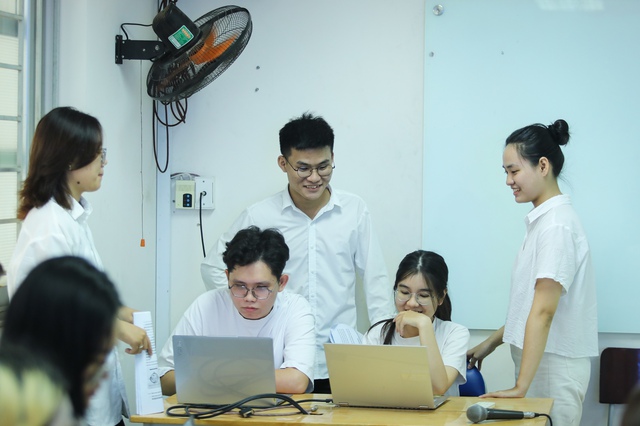
Students are encouraged to be creative, critical, and share and interact to grow.
PHOTO: NHAT THINH
Third is to cultivate human qualities. Pedagogical schools cannot only teach "teaching technology", but also "the art of being human" in a parallel and complementary way. Experiential activities, volunteering, psychological counseling, and community support are all regularly implemented, because we believe that only a happy teacher can create a happy classroom.
That said, the biggest difference lies in the way learners are viewed: not as recipients of knowledge, but as co-creators of knowledge. Students are encouraged to create, debate, share, and interact to grow.
How is the combination of technology and human elements in teaching balanced?
We understand that "smart education" cannot be just "machine education". Because if there are only machines, people will be lost; and if there are only people, people will fall behind. The problem is to balance between technology and "humanity".
In terms of program, the school has implemented many synchronous solutions, such as integrating technology in all courses as well as ensuring output standards, students have access to smart learning platforms, applying AI to build lesson plans, analyze classroom data, and build student competency profiles.
Experience the simulated classroom - virtual reality, students experience in a simulated classroom space with some initial technology on virtual reality. Develop digital safety and digital ethics capacity: Teachers need not only skills, but also responsibility when using technology. Teaching with AI must go hand in hand with awareness of copyright, truth, and professional ethics.
At the same time, we do not forget to keep the "human" part in education. Technology can support quick assessment, but only the teacher's heart can recognize the emotions and moods of students. Technology can predict learning trends, but only the teacher understands the deep cause of a quiet look or a lingering smile.
In every effort to innovate, we always keep in mind: Technology is only meaningful when it helps people become more humane, especially for those who learn to cultivate people.
What will the teacher of the next 10 years be like?
Looking to the future, I believe teachers will have two "identities": technology teachers and emotional teachers.
Teachers of the next 10 years can stand in a virtual classroom, use AI to personalize learning, but at the same time still know how to tell stories, inspire and educate with heart in a balanced, harmonious way. Teachers are not just "teachers" but "learning designers" - people who create learning experiences suitable for each student, with digital technology applications.
Future teachers must have the ability to analyze student data, know how to choose appropriate digital tools, while still maintaining empathy, pedagogical art, and pedagogical courage.
Pedagogical colleges not only train teachers, but are also centers for research, transfer of educational knowledge, policy consultation, and nurturing of smart educational ecosystems. In the context of open education, pedagogical colleges need to connect and apply technology, exploit technology in training philosophy, training cycle, assessment... to ensure applicability and continuous updating. However, there is an "original chip" that can never be reprogrammed, which is the heart of a teacher. No AI can replace the emotions, patience, tolerance, and altruism of a real teacher. Because education is not just about imparting, but about sowing seeds of the soul and cultivating personality.
If you want to become a "sower" in this turbulent world, pedagogy students should invest both their intelligence and soul. Being a teacher today is a courageous journey. Be brave to learn new things, brave to face change, and brave to keep a humane heart in the age of data and algorithms. Be a teacher of the digital age, but don't let your heart be "digitalized". You need intelligence to adapt, love to stick with, and responsibility to contribute. Because, no matter how the times change, teachers are still the ones who awaken the dreams and aspirations of each student.
Source: https://thanhnien.vn/giao-duc-su-pham-de-thich-ung-doi-moi-va-lanh-dao-su-thay-doi-185251113153449841.htm



![[Photo] Lam Dong: Panoramic view of Lien Khuong waterfall rolling like never before](/_next/image?url=https%3A%2F%2Fvphoto.vietnam.vn%2Fthumb%2F1200x675%2Fvietnam%2Fresource%2FIMAGE%2F2025%2F11%2F20%2F1763633331783_lk7-jpg.webp&w=3840&q=75)
![[Photo] National Assembly Chairman Tran Thanh Man holds talks with South Korean National Assembly Chairman Woo Won Shik](/_next/image?url=https%3A%2F%2Fvphoto.vietnam.vn%2Fthumb%2F1200x675%2Fvietnam%2Fresource%2FIMAGE%2F2025%2F11%2F20%2F1763629724919_hq-5175-jpg.webp&w=3840&q=75)
![[Photo] President Luong Cuong receives President of the Senate of the Czech Republic Milos Vystrcil](/_next/image?url=https%3A%2F%2Fvphoto.vietnam.vn%2Fthumb%2F1200x675%2Fvietnam%2Fresource%2FIMAGE%2F2025%2F11%2F20%2F1763629737266_ndo_br_1-jpg.webp&w=3840&q=75)


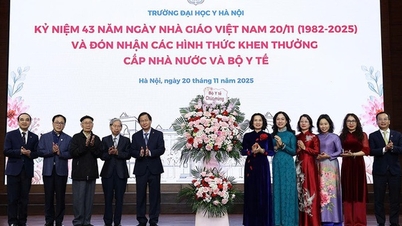

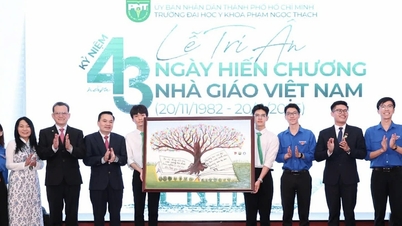
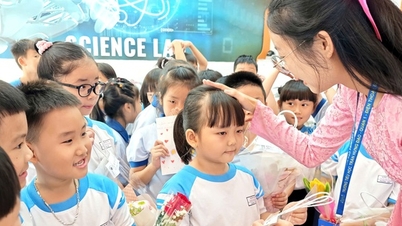



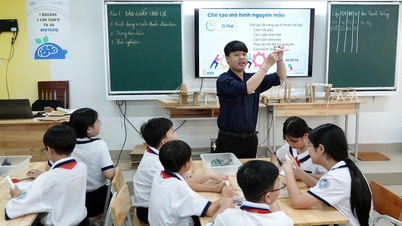
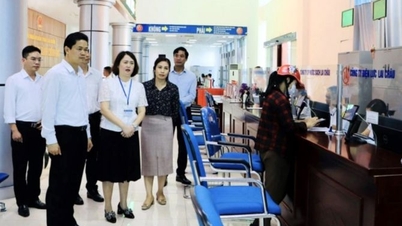

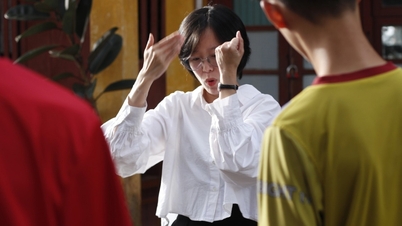

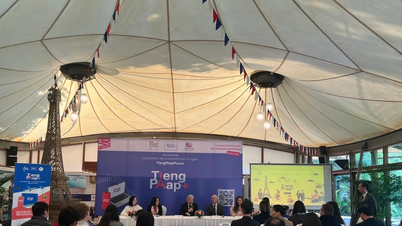

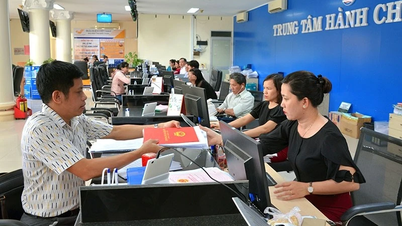
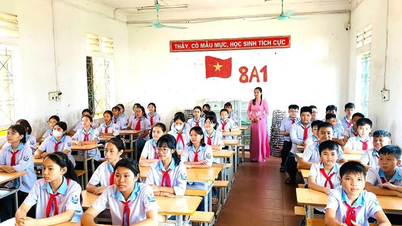
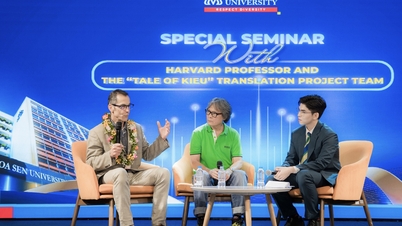









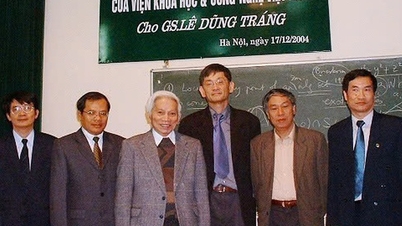
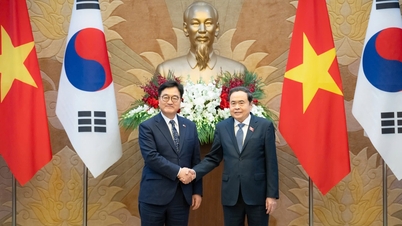











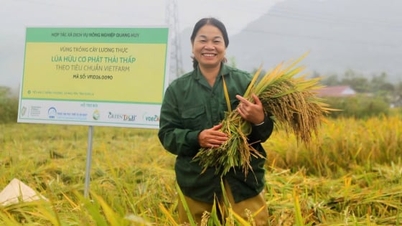

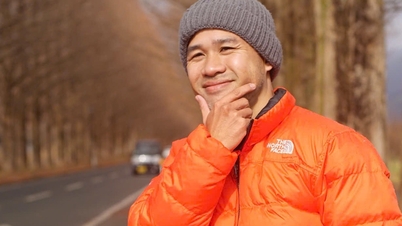
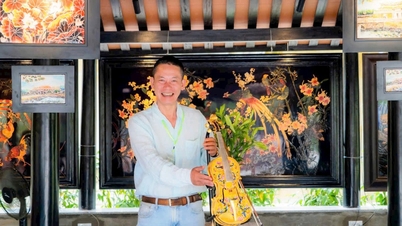
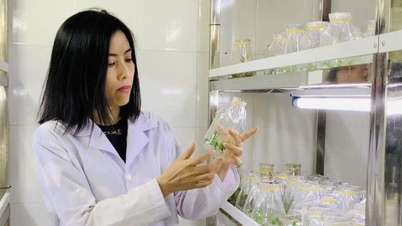
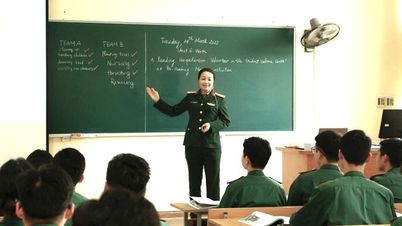
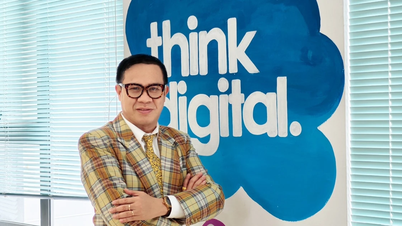

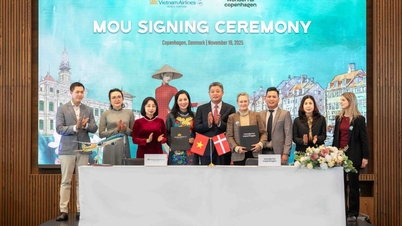

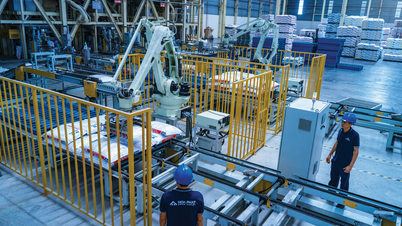

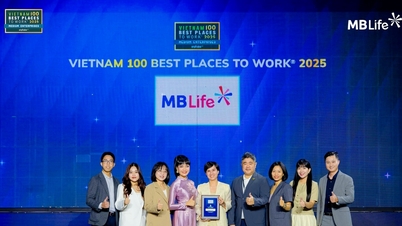










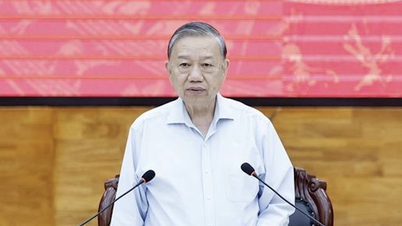


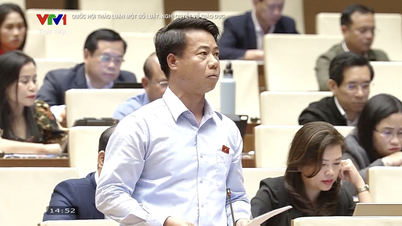


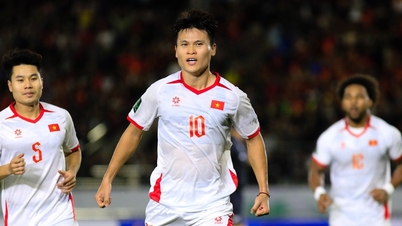



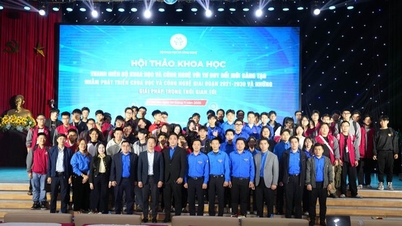

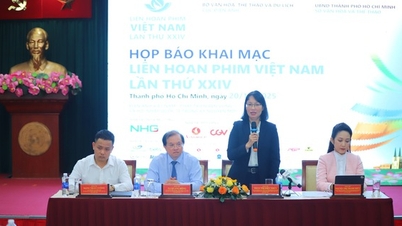

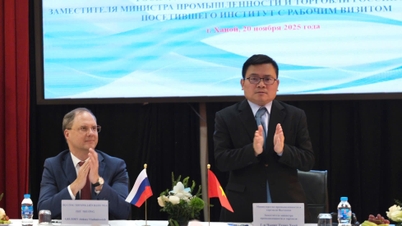
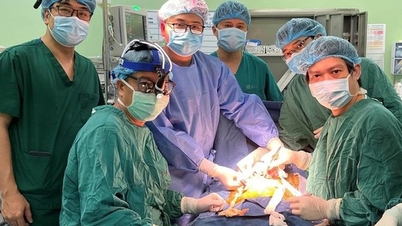
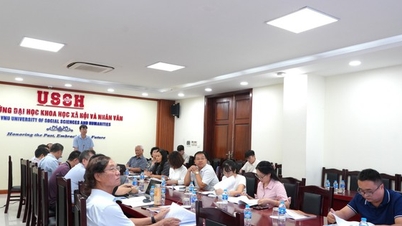
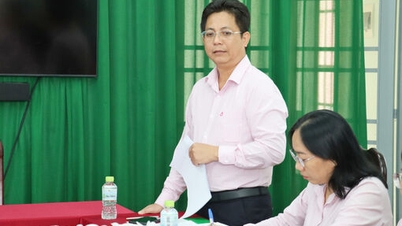

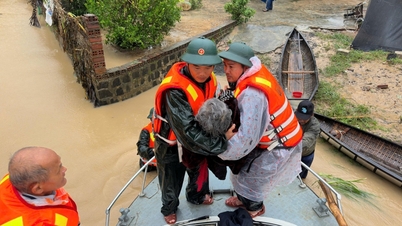

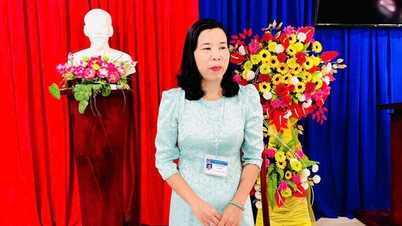



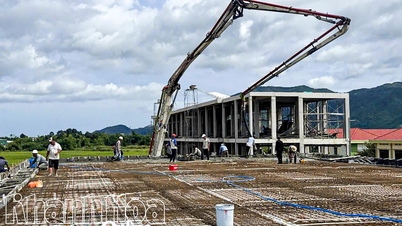


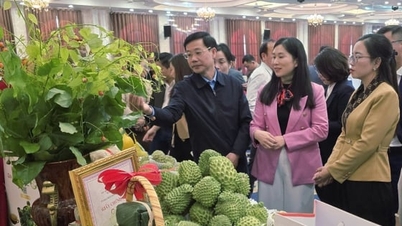











Comment (0)